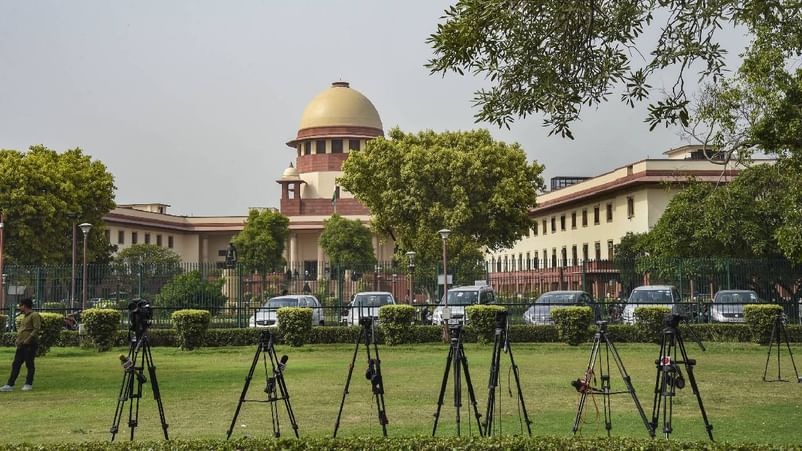
New Delhi: The Supreme Court has ruled that the offense under Section 498A of the Indian Penal Code (IPC) revolves around cruelty and not solely on dowry demands. The apex court clarified that an unlawful demand for dowry is not a prerequisite for proving cruelty under this law.
The ruling came from a bench comprising Justice Vikram Nath and Justice Prasanna B Varale, while hearing an appeal filed by a woman against an Andhra Pradesh High Court order that had quashed the criminal proceedings against her husband and mother-in-law.
High Court Quashed Proceedings Against Husband and Mother-in-Law
The Andhra Pradesh High Court had dismissed the 498A charges against the woman's husband and mother-in-law, citing that the law requires a dowry demand to establish cruelty. The accused had argued that since no dowry demand was made, the case did not meet the legal standard for "cruelty" under Section 498A IPC.
However, the Supreme Court overruled the High Court’s judgment, stating that the essence of Section 498A lies in cruelty—both physical and mental—not just in dowry-related harassment.
Supreme Court Clarifies Broad Definition of Cruelty Under Section 498A IPC
The bench emphasized that Section 498A IPC provides a broad and inclusive definition of "cruelty". It covers:
- Physical or mental harm to a woman’s body or health.
- Harassment aimed at coercing the woman or her family to meet unlawful demands, including but not limited to dowry-related demands.
- Circumstances that drive a woman to commit suicide due to mistreatment.
Dowry Demand Not Necessary to Establish Cruelty
The Supreme Court made it clear that an unlawful dowry demand is not a necessary condition to establish cruelty under Section 498A IPC.
“It suffices that the conduct falls within either of the two broad categories outlined in clauses (a) or (b) of the provision—wilful conduct likely to cause grave injury or mental harm (clause a), or harassment intended to coerce the woman or her family to meet any unlawful demand (clause b). Therefore, either form of cruelty, independent of a dowry demand, is sufficient to attract the provisions of Section 498A IPC and make the offense punishable under the law,” the court stated.
Supreme Court Sets Aside High Court Order, Restores Criminal Proceedings
The Supreme Court criticized the High Court’s reasoning, stating that it focused too much on the absence of a dowry demand and ignored the broader allegations of physical and mental abuse.
“The High Court’s decision appears to have been primarily influenced by the absence of a dowry demand, without addressing the serious allegations of physical abuse, which fall under the definition of ‘cruelty’ as per Section 498A,” the bench observed.
The Supreme Court overturned the High Court’s ruling and reinstated the criminal proceedings against the woman's husband and mother-in-law.
“This appeal is allowed, and the decision of the High Court is set aside, thereby reinstating the criminal proceedings against the Respondents under Section 498A IPC. Trial is directed to proceed as per law,” the bench ruled.
Significance of the Verdict
This ruling reinforces the fact that cruelty under Section 498A IPC is not limited to dowry-related harassment. Physical abuse, mental torture, and coercion of any form can also constitute cruelty and lead to legal consequences. The judgment serves as a significant legal precedent in cases of domestic violence and cruelty against women.

 Share
Share
_458360041_124x80.jpg)


